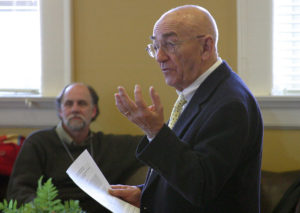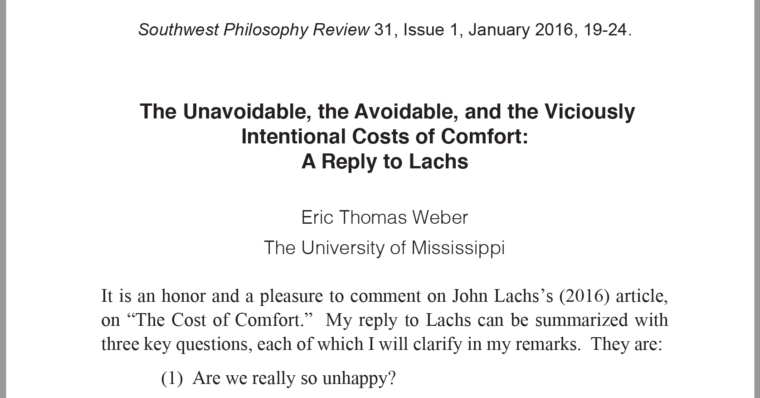In his autobiography, Life on the Mississippi, Samuel Clemens – better known as Mark Twain – describes his changing relationship with the great river.
He grew up along the Mississippi, working as a typesetter and dreaming of some day becoming a steamboat pilot. In fact, his chosen pen name, “Mark Twain” is a steamboat cry, indicating a safe depth of 2 fathoms. In his early 20s, Twain was taken on as an apprentice pilot and he spent the next two years learning everything there was to know about the Mississippi.
He describes a magnificent sunset which left him bewitched in when steam boating was new to him, and he describes the awe he felt at the secret knowledge he was learning to glean from the river’s captivating surface.
The face of the water, in time, became a wonderful book ‐ a book that was a dead language to the uneducated passenger, but which told its mind to me without reserve, delivering its most cherished secrets as clearly as if it uttered them with a voice. And it was not a book to be read once and thrown aside, for it had a new story to tell every day. Throughout the long twelve hundred miles there was never a page that was void of interest, never one that you could leave unread without loss, never one that you would want to skip, thinking you could find higher enjoyment in some other thing. There never was so wonderful a book written by man; never one whose interest was so absorbing, so unflagging, so sparklingly renewed with every reperusal. The passenger who could not read it was charmed with a peculiar sort of faint dimple on its surface (on the rare occasions when he did not overlook it altogether); but to the pilot that was an italicized passage; indeed, it was more than that, it was a legend of the largest capitals, with a string of shouting exclamation points at the end of it, for it meant that a wreck or a rock was buried there that could tear the life out of the strongest vessel that ever floated. It is the faintest and simplest expression the water ever makes, and the most hideous to a pilotʹs eye. In truth, the passenger who could not read this book saw nothing but all manner of pretty pictures in it, painted by the sun and shaded by the clouds, whereas to the trained eye these were not pictures at all, but the grimmest and most dread‐earnest of reading matter.
Twain knew something the “uneducated passenger” didn’t know. He could see more and feel more as his knowledge of the river deepened. But, eventually, something changed:
Now when I had mastered the language of this water and has come to know every trifling feature that bordered the great river as familiarly as I knew the letters of the alphabet, I had made a valuable acquisition. But I had lost something, too. I had lost something which could never be restored to me while I lived. All the grace, the beauty, the poetry, had gone out of the majestic river!
…No, the romance and beauty were all gone from the river. All the value any feature of it had for me now was the amount of usefulness it could furnish toward compassing the safe piloting of a steamboat. Since those days, I have pitied doctors from my heart. What does the lovely flush in a beautyʹs cheek mean to a doctor but a ʺbreakʺ that ripples above some deadly disease? Are not all her visible charms sown think with what are to him the signs and symbols of hidden decay? Does he ever see her beauty at all, or doesnʹt he simply view her professionally, and comment upon her unwholesome condition all to himself? And doesnʹt he sometimes wonder whether he has gained most or lost most by learning his trade?
Gaining full knowledge of the river removed the mystery, removed the wonder. The river was no long a thing a beauty – it was an object to be analyzed factually.
Interestingly, Henry Thoreau expressed something similar as he worried about his work as a surveyor and found himself complicit in defining the wilderness of land as private property:
I have lately been surveying the Walden woods so extensively and minutely that I now see it mapped in my mind’s eye – as, indeed, on paper – as so many men’s wood-lots, and am aware when I walk there that I am at any given moment passing from such a one’s wood-lot to another’s. I fear this particular dry knowledge may affect my imagination and fancy, that it will not be easy to see so much wildness and native vigor there as formerly. No thicket will seem so unexplored now that I know that a stake and stones may be found in it.
As Kent Ryden describes in Landscape With Figures, “In the end, Thoreau viewed his profession of surveyor with a profound and deep-seated ambivalence, in that it simultaneously sustained and destroyed the visual, spiritual, emotional, and imaginative relationships with landscape and nature that he valued so highly.”
Knowledge has practical purpose and value, both Twain and Thoreau seem to find, but it also destroys something greater; knowledge is incompatible with beauty and wonder.
I don’t believe I could disagree with that sentiment more strongly.
In his autobiography, A Mathematician’s Apology, the brilliant G. H. Hardy wrote: “It may be very hard to define mathematical beauty, but that is just as true of beauty of any kind — we may not know quite what we mean by a beautiful poem, but that does not prevent us from recognizing one when we read it.”
Physicist and Nobel laureate Frank Wilczek has written extensively on the beauty of natural laws, which he argues is a sentiment with deep historical roots in physics:
The nineteenth-century physicist Heinrich Hertz once described his feeling that James Clerk Maxwell’s equations, which depict the fundamentals of electricity and magnetism, “have an independent existence and an intelligence of their own, that they are wiser…even than their discoverers, that we get more out of them than was originally put into them.” Not long after, Albert Einstein called Niels Bohr’s atomic model “the highest form of musicality in the sphere of thought.” More recently, the late Nobel laureate Richard Feynman, describing his discovery of new laws of physics, declared, “You can recognize truth by its beauty and simplicity.” Similar sentiments are all but universal among modern physicists.
Both Twain and Thoreau describe the loss of beauty through a process of learning, but more importantly, through a process of objectification. Through their respective work they come to see nature as a thing to be conquered, an object which can be possessed. They come to view the river or the woods through completely utilitarian means. They domesticate the natural world.
Real knowledge isn’t about that. It is about understanding the world, about reading the wonderful book as Mark Twain so eloquently describes; but ultimately it’s about constantly unlocking deeper levels of mystery, finding new layers of awe.
Knowledge builds beauty; the book never ends.


 A
A


